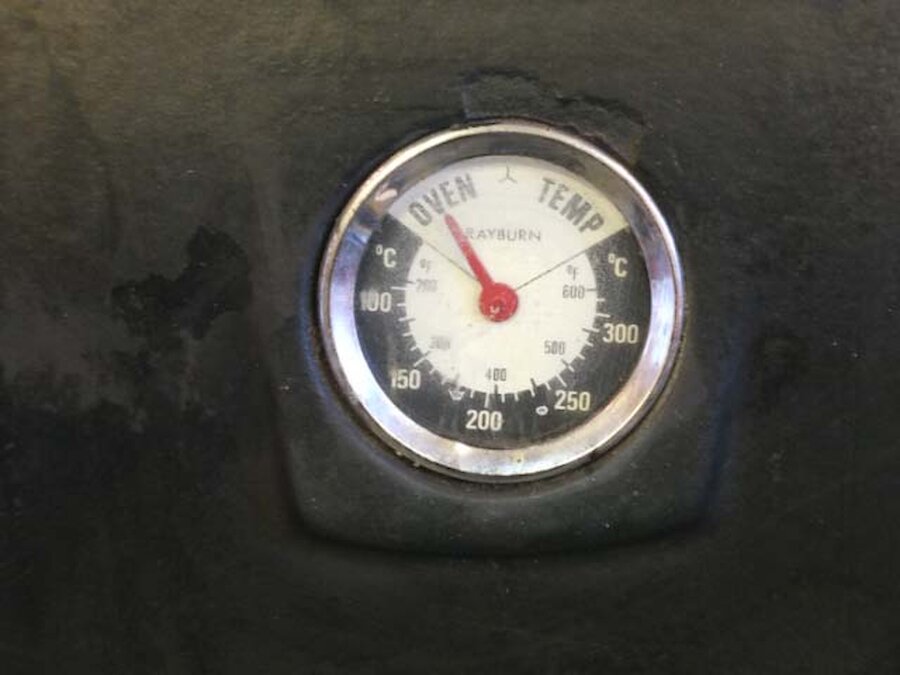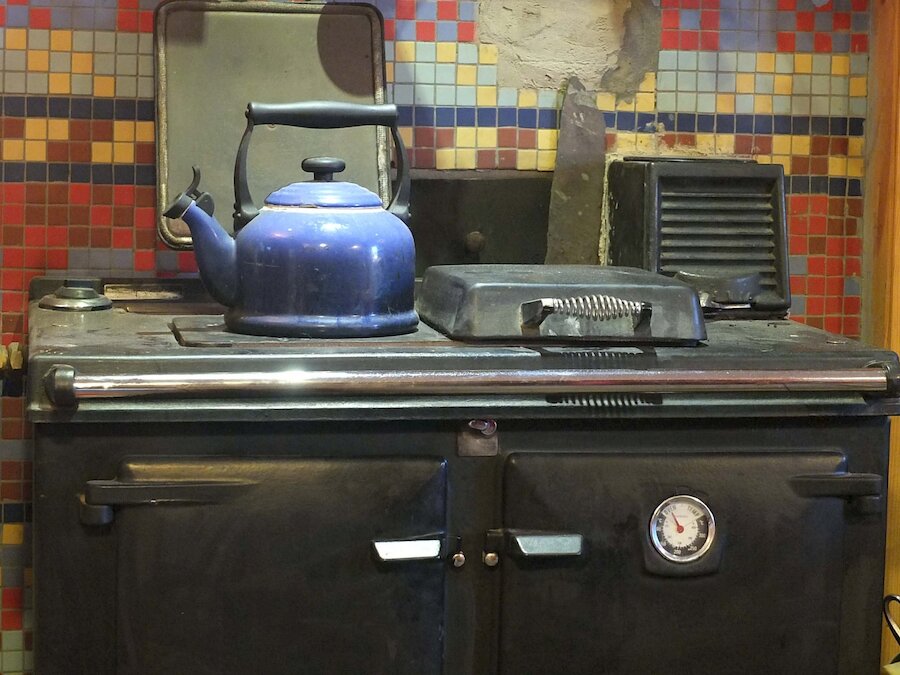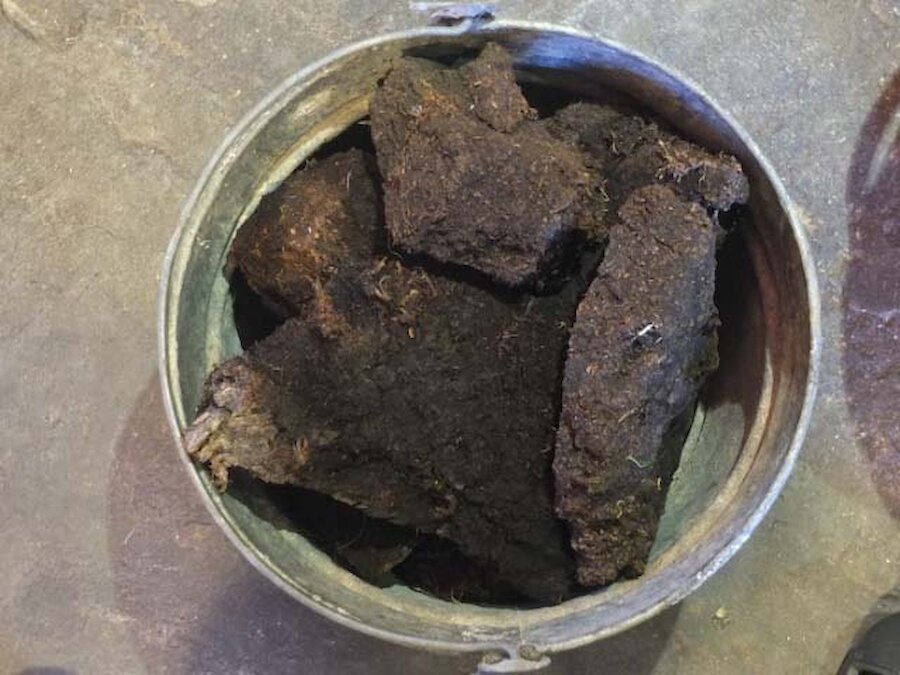But in Shetland, gezellig is a winter way of life. The dialect phrase ‘in aboot da night’ conjures the scene perfectly, particularly when it becomes an invitation (or a demand): ‘Cam ye aa in aboot da night’. It’s untranslatable, but essentially means: ‘Come, on, everybody, come into the house, sit down next to the Rayburn and have a glass of this dark rum, a cup of tea, large amounts of soup, mutton, bread, butter and home made cakes of every variety, and listen to some stories, tell some stories, gossip, sing, play tunes on the fiddle and guitar. Or share my curry and watch this new Netflix series. More rum? Perhaps a Red Tin or an obscure and tasty local IPA?’ I told you it was untranslatable.
The key to this essential notion of hospitality is, for me, the Rayburn. Or shall we just say ‘stove’? I think we shall. It should be peat fired, as the pungent aroma, the reek of burning bog is part of the winter isles experience. It should be so hot it glows red, and controllable to the extent that it does not set the chimney on fire. In the past, it would have been the absolute epicentre of family life, providing food, heat, hot water and refuge from the darkness and cold (often moving very quickly) outside. It would never go out, except on the cusp of the aald new year, when it would be symbolically extinguished before being relit for the coming 12 months.
Now, in our house, the stove is a symbol of welcome, warmth and winter. It is pure gezellig, except when it’s unlit, cold and badly needing emptied of ash, when it is very definitely ongezillig. So excuse me, but I must go and sort out the Rayburn, sorry stove. It’s lunchtime, it’s getting dark and there are folk coming round. I have custard to cook.
If you want to know all about vla and other wonderful Dutch dairy products such as kwark and of course advocaat (alcoholic vla), this blog post is excellent: http://myorangenotepad.blogspot.co.uk/2011/01/dutch-dairy-products-milk-yoghurt-kwark.html I am extremely grateful to Irene Beyer for pointing out the correct spelling of 'gezellig'!



